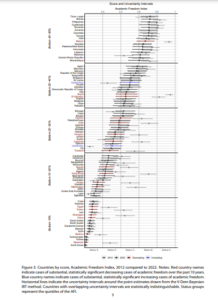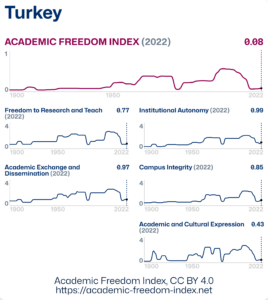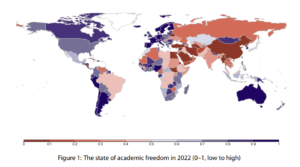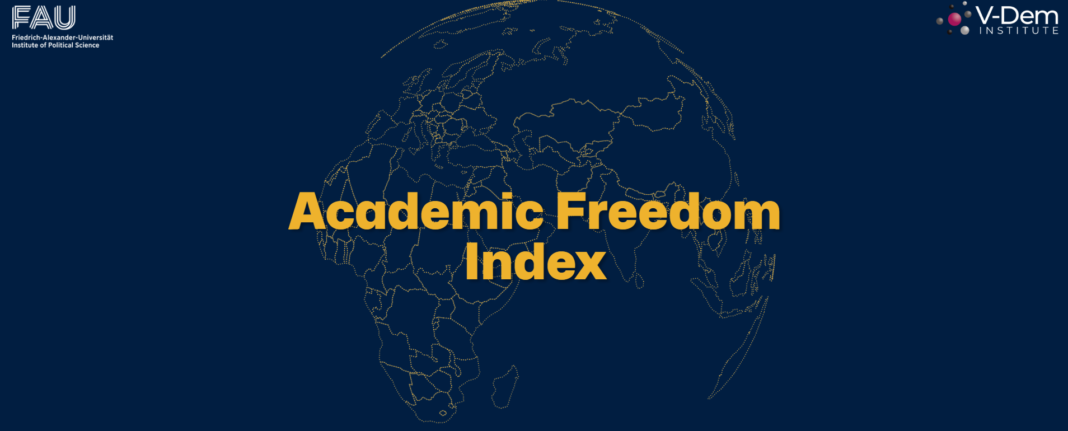Turkey’s academic freedom has sharply declined in the last decade, putting Turkey in 166th place out of 179 countries as of December 2022, according to a recent update to an index prepared by German and Swedish scholars.

According to the Academic Freedom Index (AFI), which assesses de facto levels of academic freedom around the world, Turkey is in the bottom 10 percent with a score of 0.08 out of 1, putting it just ahead of countries with strict restrictions such as North Korea, Myanmar and Iran. The country ranks behind Tajikistan, Russia and Bangladesh.
The AFI project, funded by the German non-profit Fritz Thyssen Foundation, started in 2017 and published its first index in 2020.
According to the latest index, Turkey reached a score of 0.43 in 2012, with the quantified value of academic freedom falling more than 80 percent in 10 years.
The AFI assesses academic freedom through five key indicators, each with a scoring range from 0 to 4.
Turkey’s academic freedom has significantly deteriorated across all key areas, with the freedom to research and teach, academic exchange and dissemination, institutional autonomy, campus integrity and academic and cultural expression all experiencing substantial declines in their scores from 2012 to 2022.

This downward trajectory in Turkey’s academic freedom is primarily linked to events following a 2016 coup attempt. In the wake of the abortive putsch, the Turkish government carried out a sweeping crackdown on the academic sector. This crackdown resulted in the dismissal of over 30,000 teachers and 7,000 academics, with many facing severe consequences such as legal actions, loss of employment or imprisonment for criticizing government policies.
A significant factor in this decline was President Recep Tayyip Erdoğan’s 2016 decision to abolish intra-university elections for the selection of university rectors, a move that replaced a traditionally democratic process with direct presidential appointments. This policy has faced widespread criticism for undermining the independence of institutions of higher learning and centralizing control in the hands of the government.

The AFI 2022 shows that more than half of the world’s population, around 4 billion people, live in regions where academic freedom is declining, while the situation is improving only slightly in five smaller countries. Academic freedom is stagnant or remains at a low level in 152 countries, with significant regional differences in countries such as India, China, the US and Mexico.
The AFI report, based on contributions from 2,197 scholars, highlights global trends showing a decline in academic freedom beginning in 2008 and returning to levels last seen four decades ago. The report also calls for scholarly contributions to the AFI dataset and urges policymakers and leaders to use this data to advocate for academic freedom.
